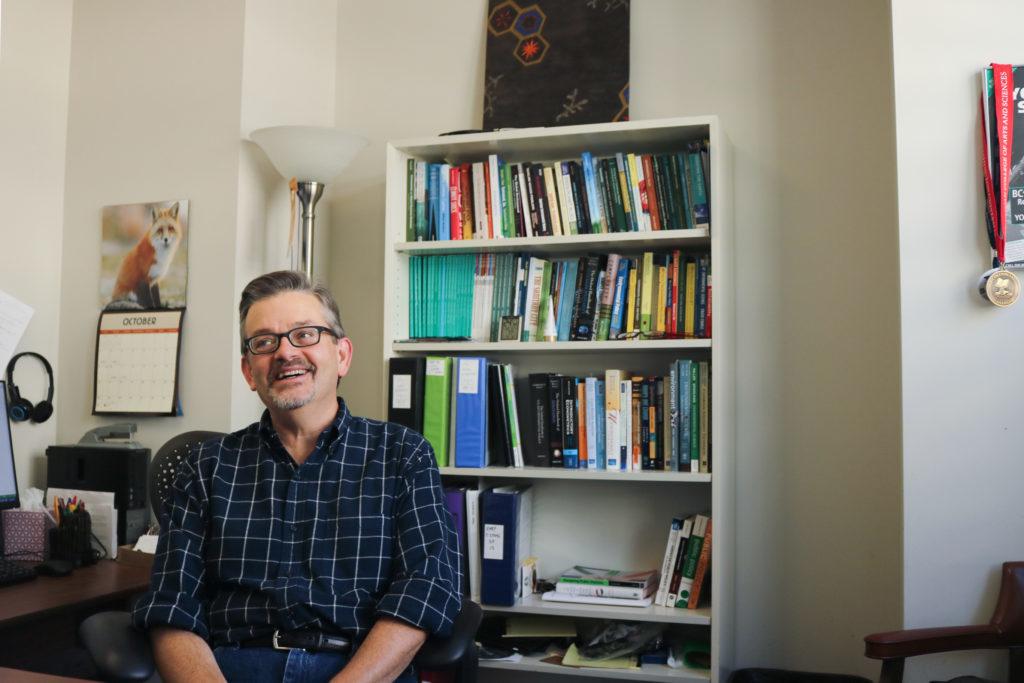The environmental resource policy program saw a slight uptick in applications this year after announcing a merger with the Trachtenberg School of Public Policy and Public Administration and making GRE scores optional on applications.
Program leaders, who teach environmental science with public policy, environmental law and economics, say they made these changes to give students more administrative and peer support, and to fall in line with undergraduate test-optional policies and the Trachtenberg School’s move to make GREs optional.
The GREs are the graduate school equivalent of the ACT or SAT. GW’s undergraduate applications became test-optional in August 2015 to attract more low-income and minority applicants.
University spokesman Jason Shevrin said in an email that admissions officials for programs in the Trachtenberg school weigh several factors when reviewing applicants, which may or may not include test scores.
Many factors can contribute to a student’s success in graduate school and a holistic approach helps identify a diverse range of students.
“Many factors can contribute to a student’s success in graduate school and a holistic approach helps identify a diverse range of students who can contribute to the student body,” Shevrin said.
Shevrin declined to provide application or acceptance numbers for the environmental resource policy program, citing a University policy to not provide individual school-level breakdowns for graduate program applications.
Program administrators announced in the fall that they would introduce a new graduate certificate and finalized the merger with the Trachtenberg school shortly afterward. The 25-year-old program, which is currently a freestanding master’s program in the Columbian College of Arts and Sciences, will fold into the public policy school this fall.
Peter Linquiti, the director of the program, said he has already seen applications increase by a “handful,” but that the new GRE-optional policy hasn’t been widely publicized yet.
The program has increased in size slightly each of the past few years, according to institutional data from the University. In 2013, 15 students graduated from the program. The next year, that number increased to 20 and has stayed at 26 students for the past two years. Linquiti said that there are 35 students currently enrolled in the program.
Linquiti said making the GRE optional will hopefully give a more accurate picture of applicants’ qualifications instead of reflecting how money they invested in preparing for the test – a major criticism of using standardized testing in admissions.
“We always read the whole applications but when the GREs are not there, you have to read extra carefully to make sure the person will do the work once they actually come,” Linquiti said.
By virtue of still being a small program, if the GRE-optional policy or the graduate certification doesn’t receive interest, then administrators can change them, he said.
“We want to have kind of an entrepreneurial mindset. Try some creative things. If we’re able to help students with what they need, fantastic,” he said.
Linquiti said the merger will help the students already in the program by providing them with a home. Previously, the Columbian College housed the program, but it was independent – not falling into any of the school’s departments.
We want to have kind of an entrepreneurial mindset. Try some creative things.
“The only thing I was frustrated about is we were small and kind of floated around untethered in the Columbian College, so with this merger I think we have addressed the only gap in the program,” he said.
Michael Streight, a graduate assistant and liaison to the Trachtenberg School and first-year student in the program, said he expects the merger to help his peers feel more welcome at GW and have more of a role in the graduate school’s student life.
“Trachtenberg has so many amazing resources for students including their career services,” Streight said. “It’s just a bigger group that we get to be a part of but we still get to maintain our small group of ENRP while still taking advantage of this larger pool of resources.”
He added that he was hopeful that resources like a large alumni base and career services in the Trachtenberg school would help with job security in the federal government, especially in light of the Trump administration’s recent hiring freezes.
Jacquelyn Wang, the co-president of the Trachtenberg Student Organization, said the organization will reach out to the students in the environmental policy program when they join the school. The organization has already hosted an event for the students, which she said was well-attended.
“It was really nice to kind of see their faces and familiarize ourselves with them,” Wang said.





